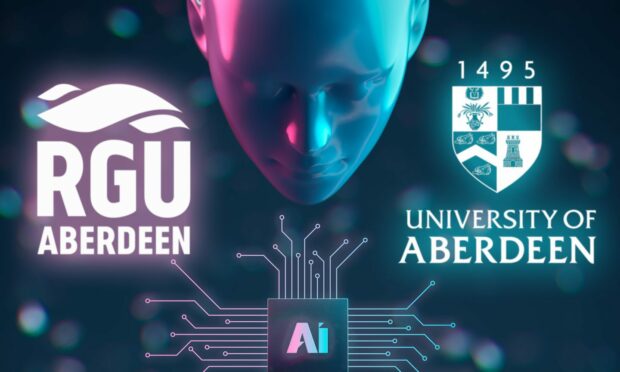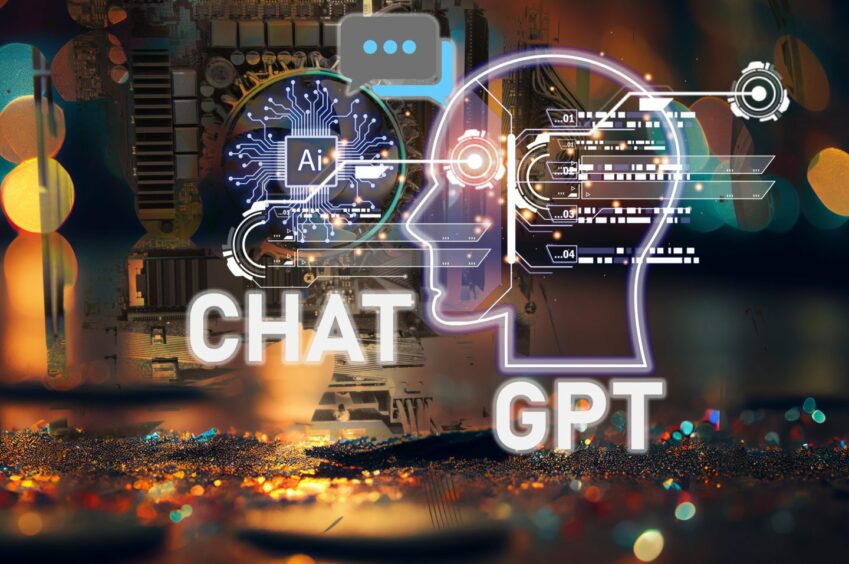Students at Robert Gordon’s University (RGU) are consulting artificial intelligence (AI) more than 2,400 times a month, new figures have revealed.
A Freedom of Information (FOI) request shows that students in Aberdeen have been investigated by their universities for cheating using online AI chatbots.
Aberdeen University and RGU have both recently updated academic regulations to address cheating concerns posed by the technology.
It comes amidst a rise in students using technology such as the OpenAI chatbot ChatGPT-4.
The AI service launched in November 2022.
Since then, ChatGPT has made worldwide headlines after it proved itself capable of writing code, composing music, writing essays and even passing real-life exams.
To see what it could do, The Press and Journal asked the chatbot how it would solve Aberdeen’s problems in January.
Since then universities have been scrambling to keep up with the AI revolution to ensure their qualifications still hold merit.
Aberdeen and RGU investigate students for AI cheating
The FOI showed that the ChatGPT website is visited on average 2,434 times each month at RGU through the national university system Eduroam.
But there could be more who access it through the cloud or on their home connections.
Aberdeen University said it does not record how many people visit the site.
RGU investigated less than five students in April and May this year for AI cheating. Until this year, it had never investigated a student for AI-led cheating before. The outcome of the investigation is not known.
Aberdeen University has investigated four students but has not found anyone guilty.
Is AI detection software able to catch all of the cheaters?
Both universities use the industry-leading plagiarism detection software Turnitin which is used by most British universities.
In February, Turnitin launched an AI writing detector function to help keep up with demand.
However, concerns have been raised that students could possibly write assignments using AI tools before rephrasing the essay – making detection impossible.
A number of high-profile institutions in both the United States and the UK have banned the tool.
Aberdeen University said it keeps its assessment approaches under review but encourages assessments less vulnerable to AI such as “applying learning in real-world scenarios”.
A spokesman said: “The vast majority of our students take pride in their work and act honestly, however we do nonetheless ensure they are provided with relevant training and support on academic integrity.
“Work is ongoing to advise students on the use of AI-based applications, based on their level of study and discipline.
“We will continue to monitor developments to inform our approaches and policies going forward.”
Aberdeen University then said it has also been encouraging staff to “consider the potentially positive implications” of AI.
RGU looks at positive benefits of AI
RGU has been more encouraging about the benefits that can be gained from using AI, while also acknowledging the concerns around academic integrity.
A spokesman said: “We are focusing on how we can guide our students to use ChatGPT in ways that enriches their learning and upholds academic integrity, rather than shutting it down.
“AI is already changing the ways in which people and organisations work and will re-shape the jobs of the future.
“Against this context it is vital to ensure our approaches to teaching and assessment evolve to embrace AI responsibly and appropriately so that we may continue to equip our students for success in the rapidly changing world of work.”




